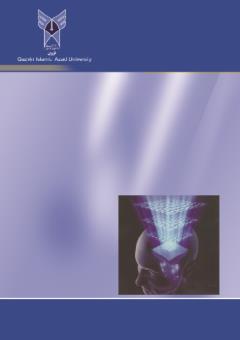Perturbed Masking for aspect-based sentiment analysis
Subject Areas : Journal of Computer & RoboticsAkarm Karimi zarandi 1 , Sayeh Mirzaei 2
1 - School of Engineering Science, College of Engineering, University of Tehran, Iran
2 - School of Engineering Science, College of Engineering, University of Tehran, Iran
Keywords: Aspect-based sentiment analysis, Deep Learning, Transformer, Perturbed Masking, Bert.,
Abstract :
Aspect based sentiment analysis (ABSA) has gained considerable attention due to its wide range of applications in commercial, social media, and political intelligence, allowing organizations to gain valuable insights from customer opinions and public discourse. This field focuses on analyzing texts from different perspectives, specifically identifying sentiments associated with various aspects of a product or service, making it essential to enhance the performance of ABSA techniques. Various approaches, including lexicon based methods, machine learning, and hybrid models, have been explored to tackle the complexities involved in this task. In particular, the integration of deep learning and transformer networks has shown promising results, especially in capturing nuanced language patterns. In this study, we propose a model that leverages pre trained language models, incorporating the Perturbed Masking method to capture both syntactic and semantic information, thus enabling a more comprehensive analysis. Our experiments, conducted on the SemEval 2014 dataset (restaurant and laptop reviews) and the Twitter dataset, demonstrate the model’s robust performance in improving ABSA results, offering new possibilities for more accurate sentiment prediction across diverse domains.
1. Birjali, M., M. Kasri, and A. Beni-Hssane, A comprehensive survey on sentiment analysis: Approaches, challenges and trends. Knowledge-Based Systems, 2021. 226: p. 107134.
2. Trisna, K.W. and H.J. Jie, Deep learning approach for aspect-based sentiment classification: a comparative review. Applied Artificial Intelligence, 2022. 36(1): p. 2014186.
3. Devlin, J., Bert: Pre-training of deep bidirectional transformers for language understanding. arXiv preprint arXiv:1810.04805, 2018.
4. Nath, D. and S.K. Dwivedi, Aspect-based sentiment analysis: approaches, applications, challenges and trends. Knowledge and Information Systems, 2024: p. 1-43.
5. Yusuf, K.K., et al., A technical review of the state-of-the-art methods in aspect-based sentiment analysis. Journal of Computing Theories and Applications, 2024. 1(3): p. 287-298.
6. Wang, K., et al., Relational graph attention network for aspect-based sentiment analysis. arXiv preprint arXiv:2004.12362, 2020.
7. Wu, H., C. Huang, and S. Deng, Improving aspect-based sentiment analysis with Knowledge-aware Dependency Graph Network. Information Fusion, 2023. 92: p. 289-299.
8. Yu, B. and S. Zhang, A novel weight-oriented graph convolutional network for aspect-based sentiment analysis. The Journal of Supercomputing, 2023. 79(1): p. 947-972.
9. Feng, S., et al., Aspect-based sentiment analysis with attention-assisted graph and variational sentence representation. Knowledge-Based Systems, 2022. 258: p. 109975.
10. Zarandi, A.K. and S. Mirzaei, A survey of aspect-based sentiment analysis classification with a focus on graph neural network methods. Multimedia Tools and Applications, 2024. 83(19): p. 56619-56695.
11. Wu, Z., et al., Perturbed masking: Parameter-free probing for analyzing and interpreting BERT. arXiv preprint arXiv:2004.14786, 2020.
12. Dai, J., et al., Does syntax matter? a strong baseline for aspect-based sentiment analysis with roberta. arXiv preprint arXiv:2104.04986, 2021.
13. Kirange, D., R.R. Deshmukh, and M. Kirange, Aspect based sentiment analysis semeval-2014 task 4. Asian Journal of Computer Science and Information Technology (AJCSIT) Vol, 2014. 4.
14. Rosenthal, S., N. Farra, and P. Nakov, SemEval-2017 task 4: Sentiment analysis in Twitter. arXiv preprint arXiv:1912.00741, 2019.
15. Ma, D., et al., Interactive attention networks for aspect-level sentiment classification. arXiv preprint arXiv:1709.00893, 2017.
16. Fan, F., Y. Feng, and D. Zhao. Multi-grained attention network for aspect-level sentiment classification. in Proceedings of the 2018 conference on empirical methods in natural language processing. 2018.
17. Tay, Y., L.A. Tuan, and S.C. Hui. Learning to attend via word-aspect associative fusion for aspect-based sentiment analysis. in Proceedings of the AAAI conference on artificial intelligence. 2018.


